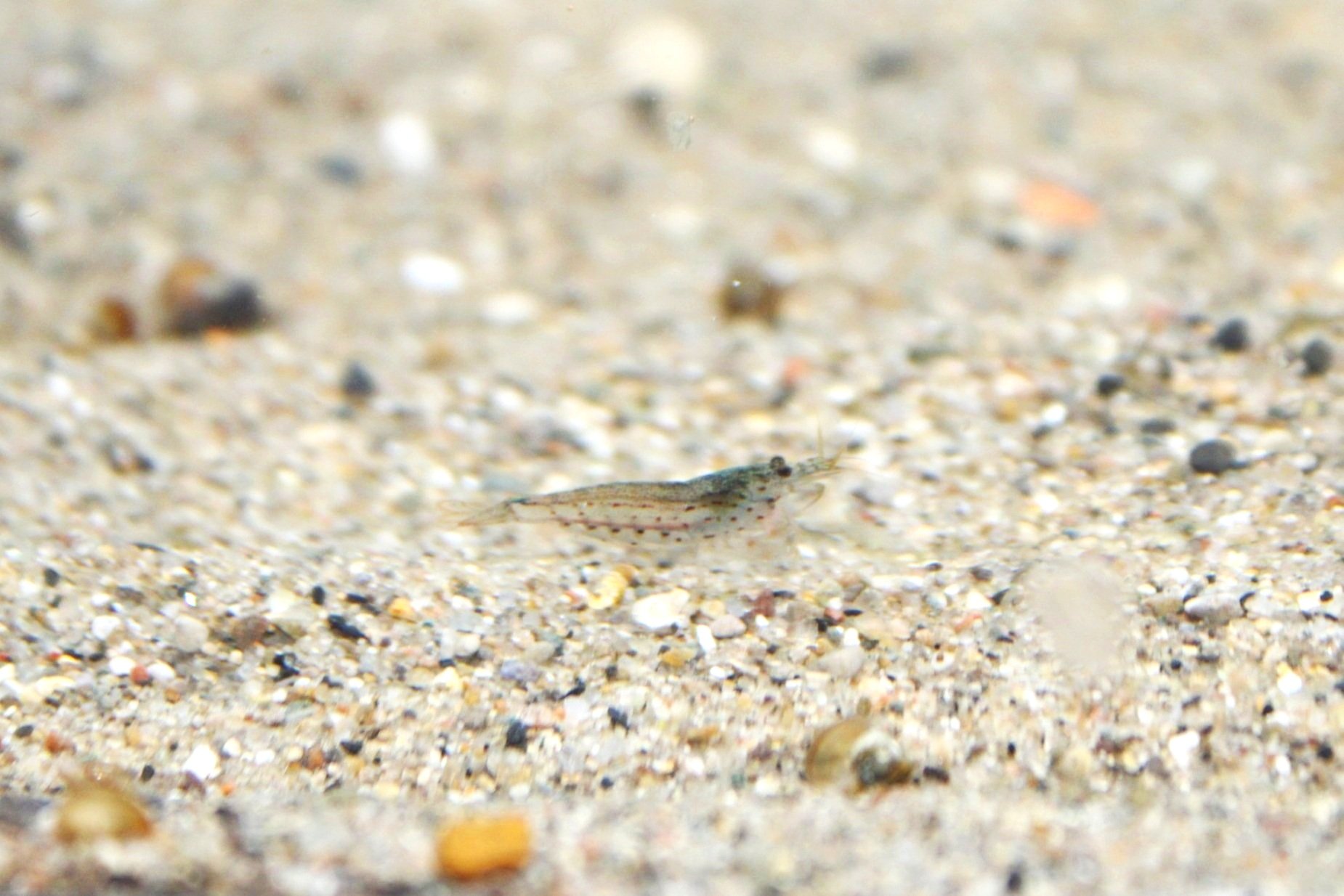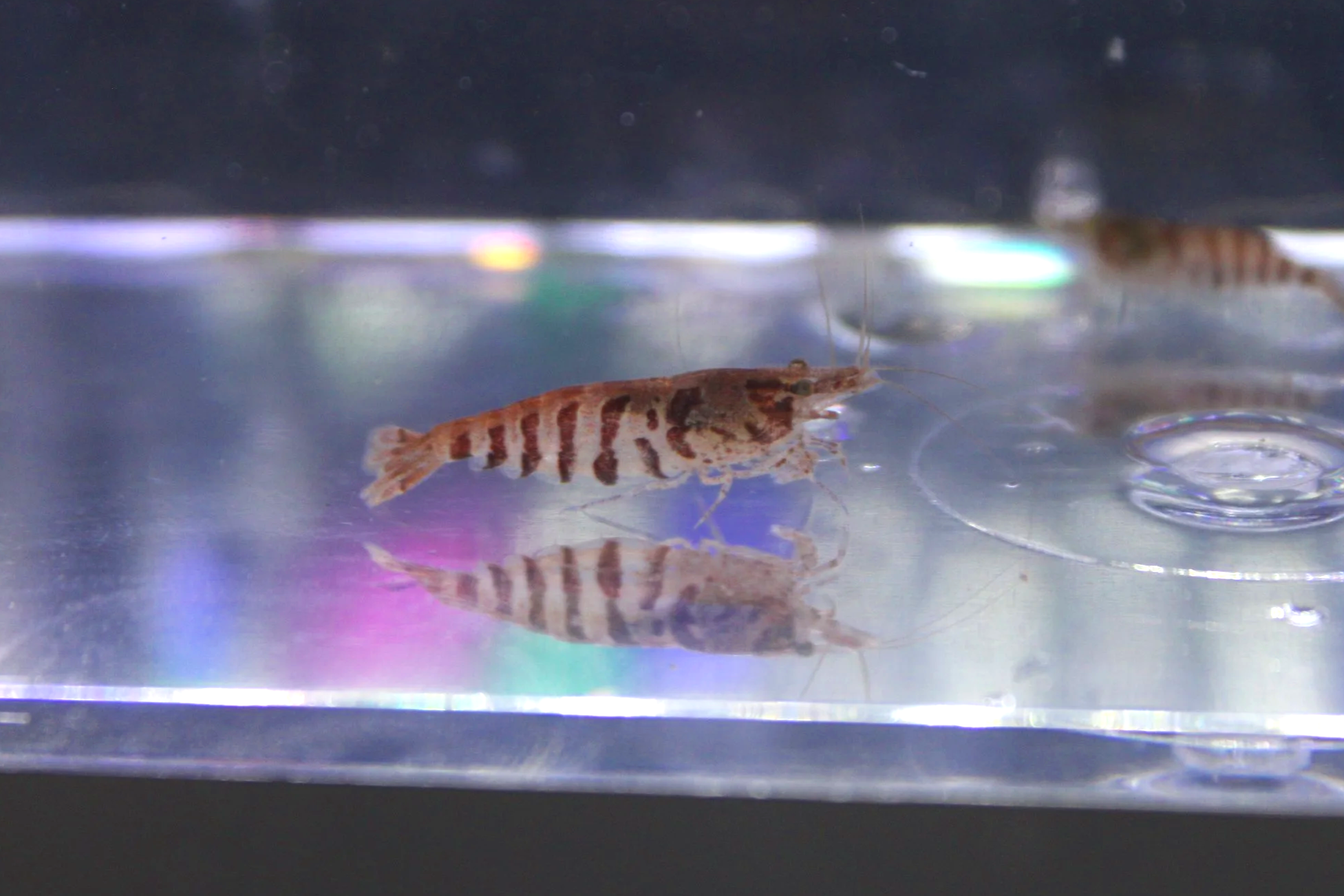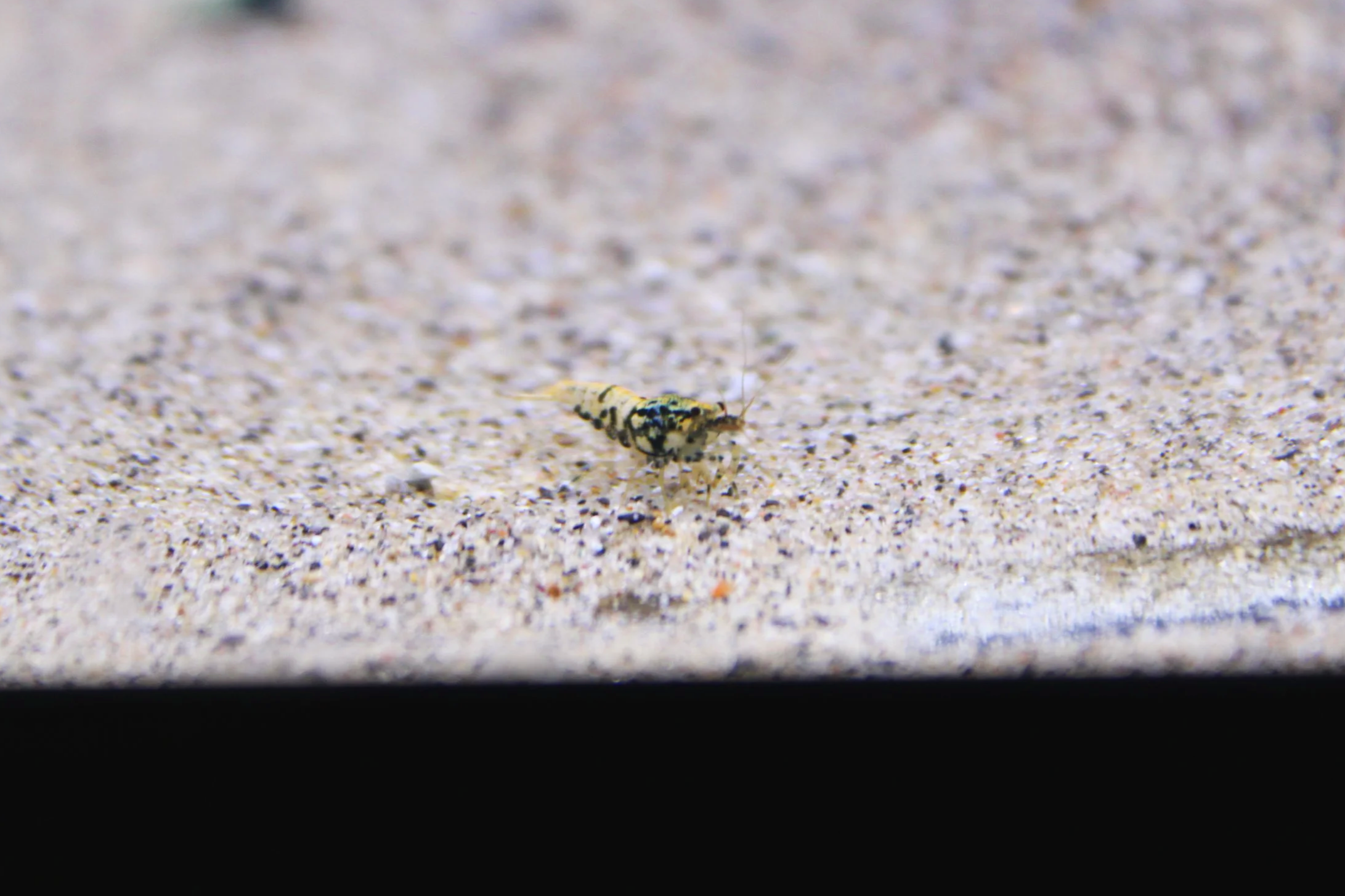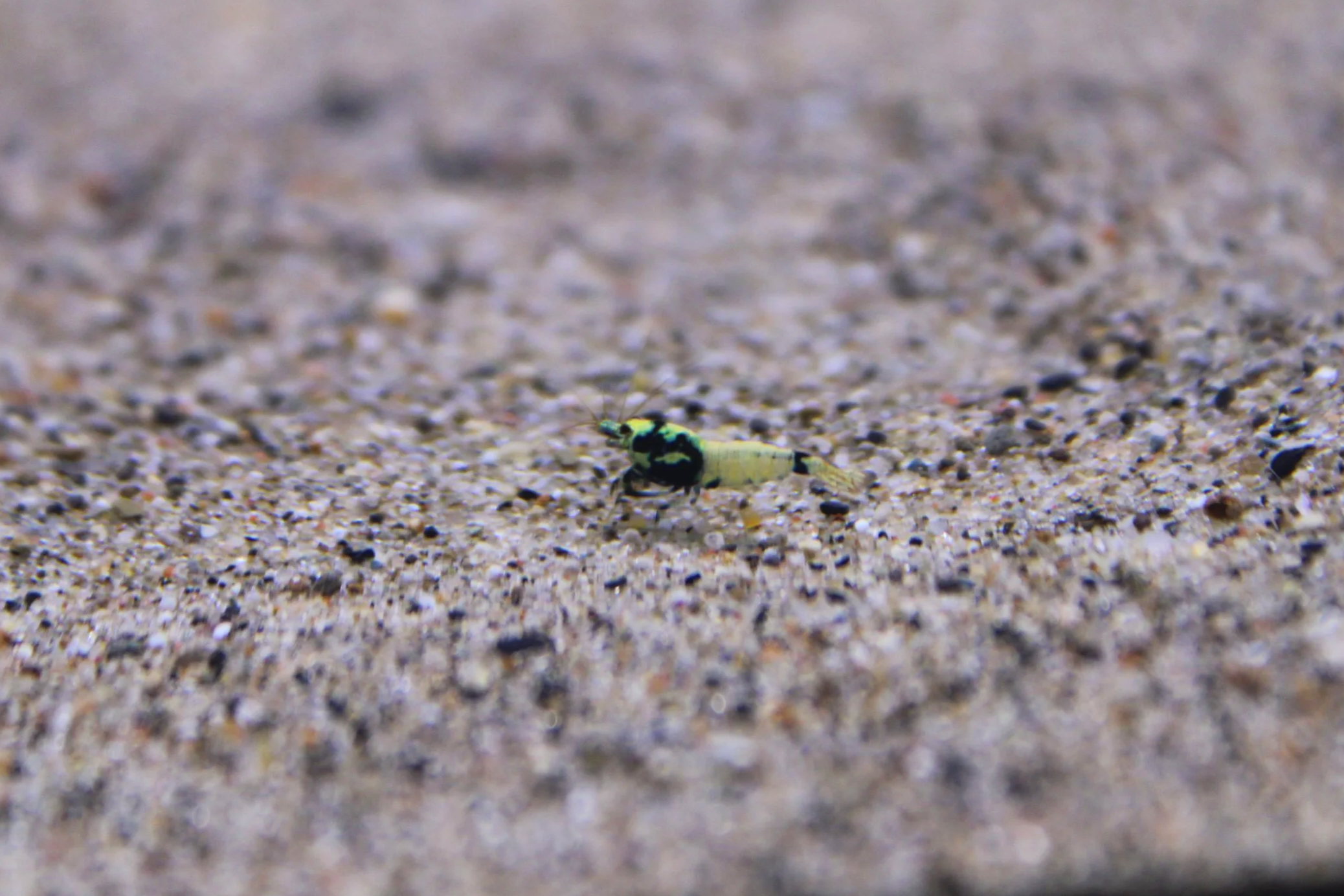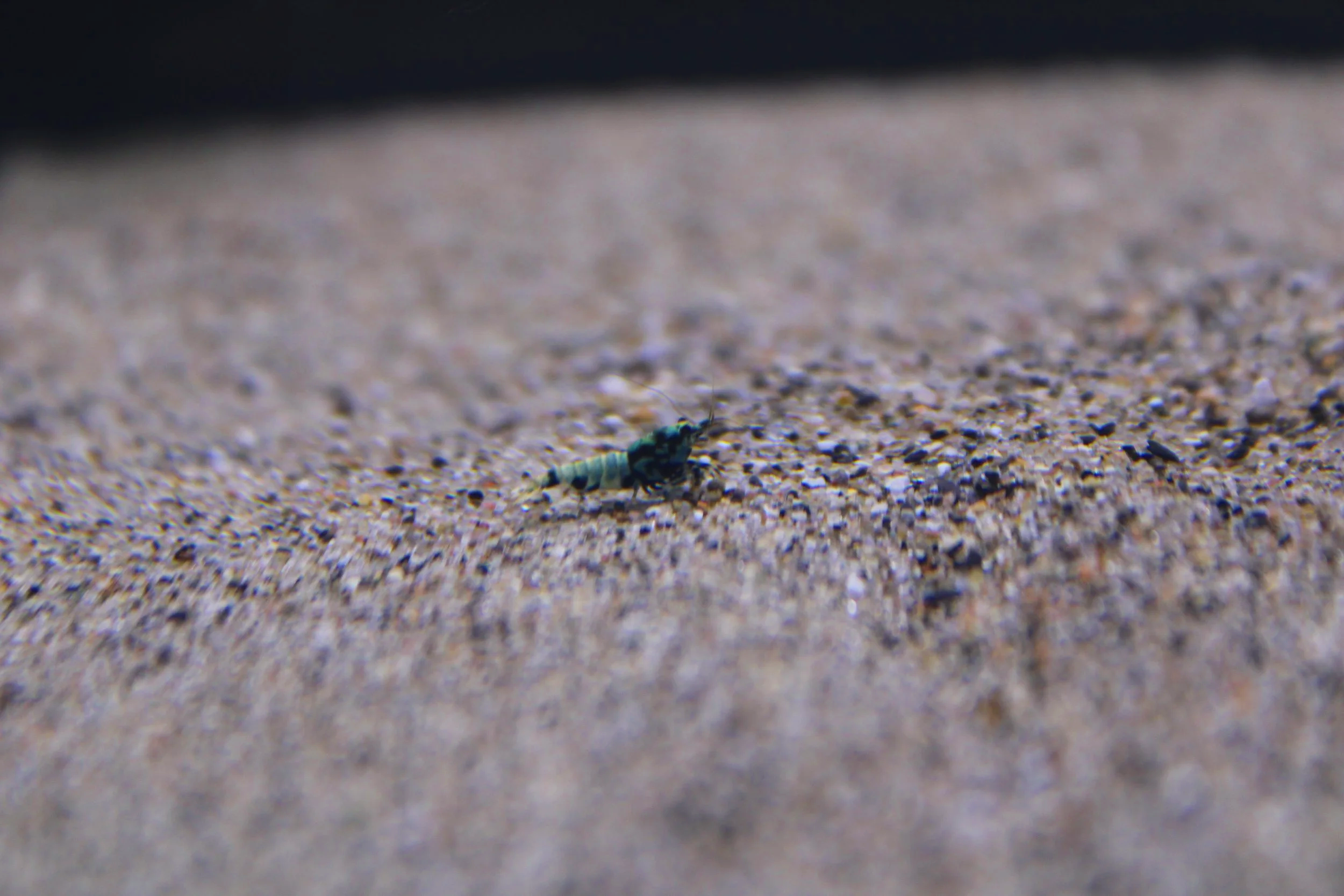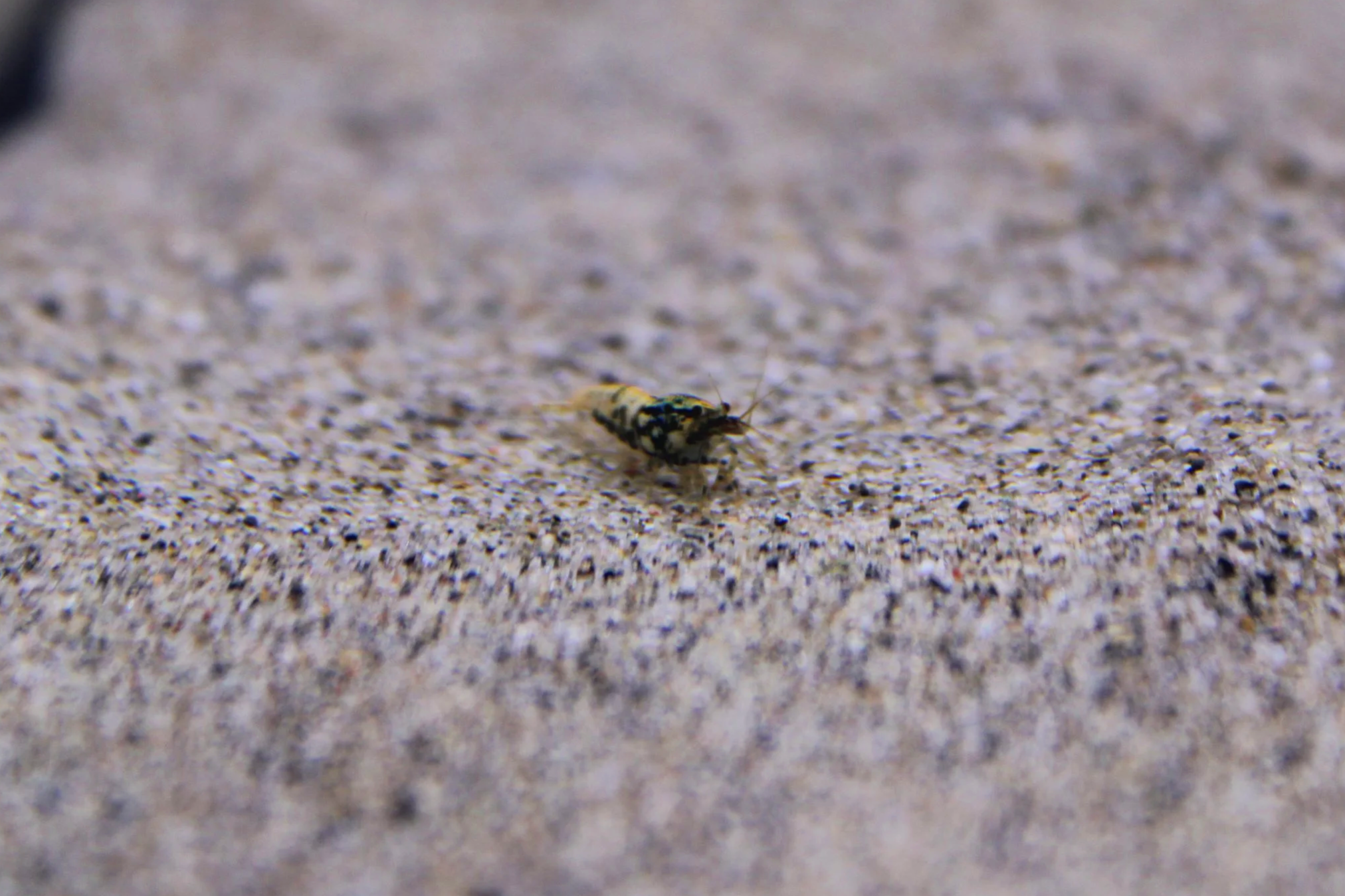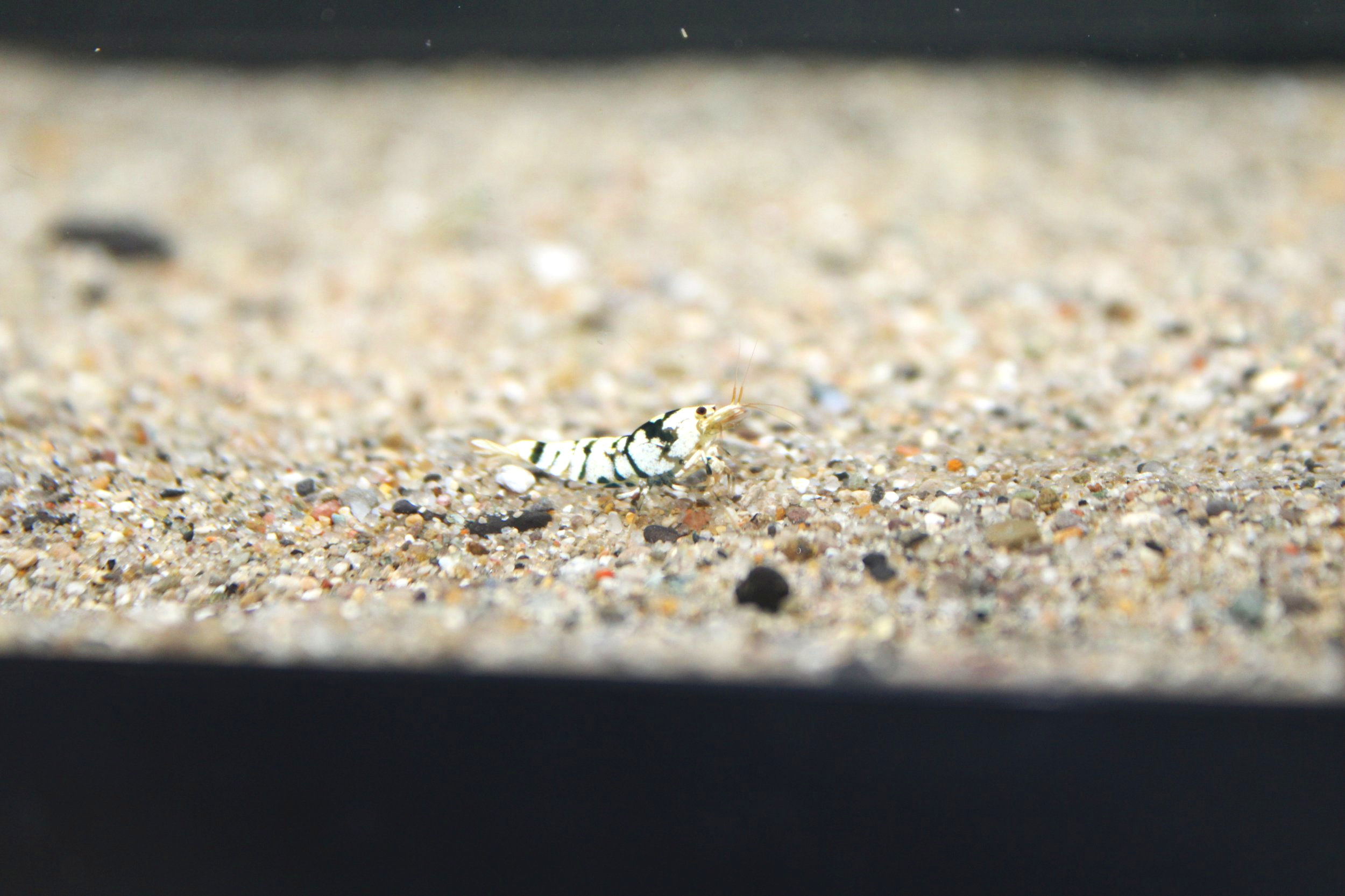 Image 1 of 7
Image 1 of 7

 Image 2 of 7
Image 2 of 7

 Image 3 of 7
Image 3 of 7

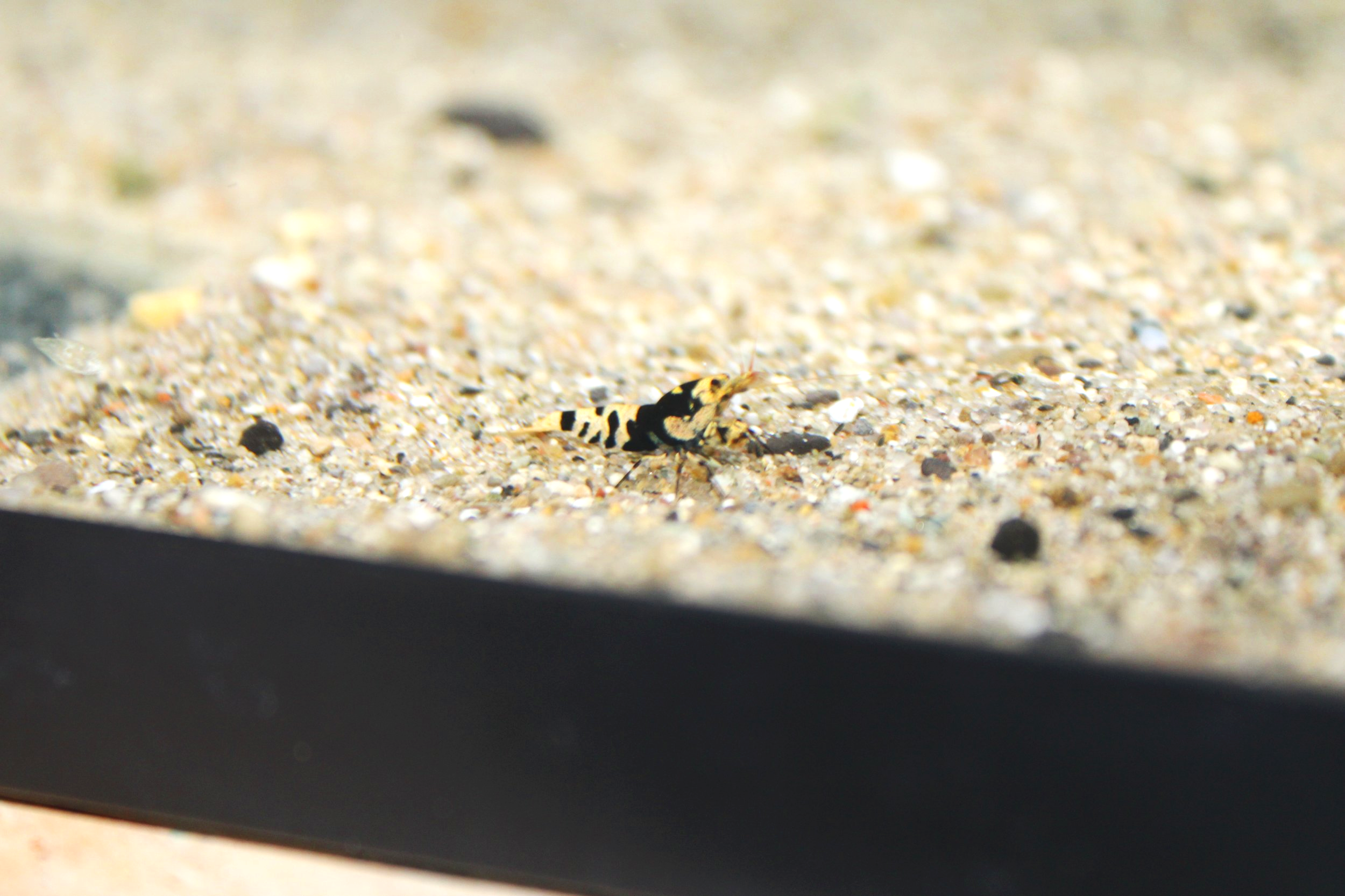 Image 4 of 7
Image 4 of 7

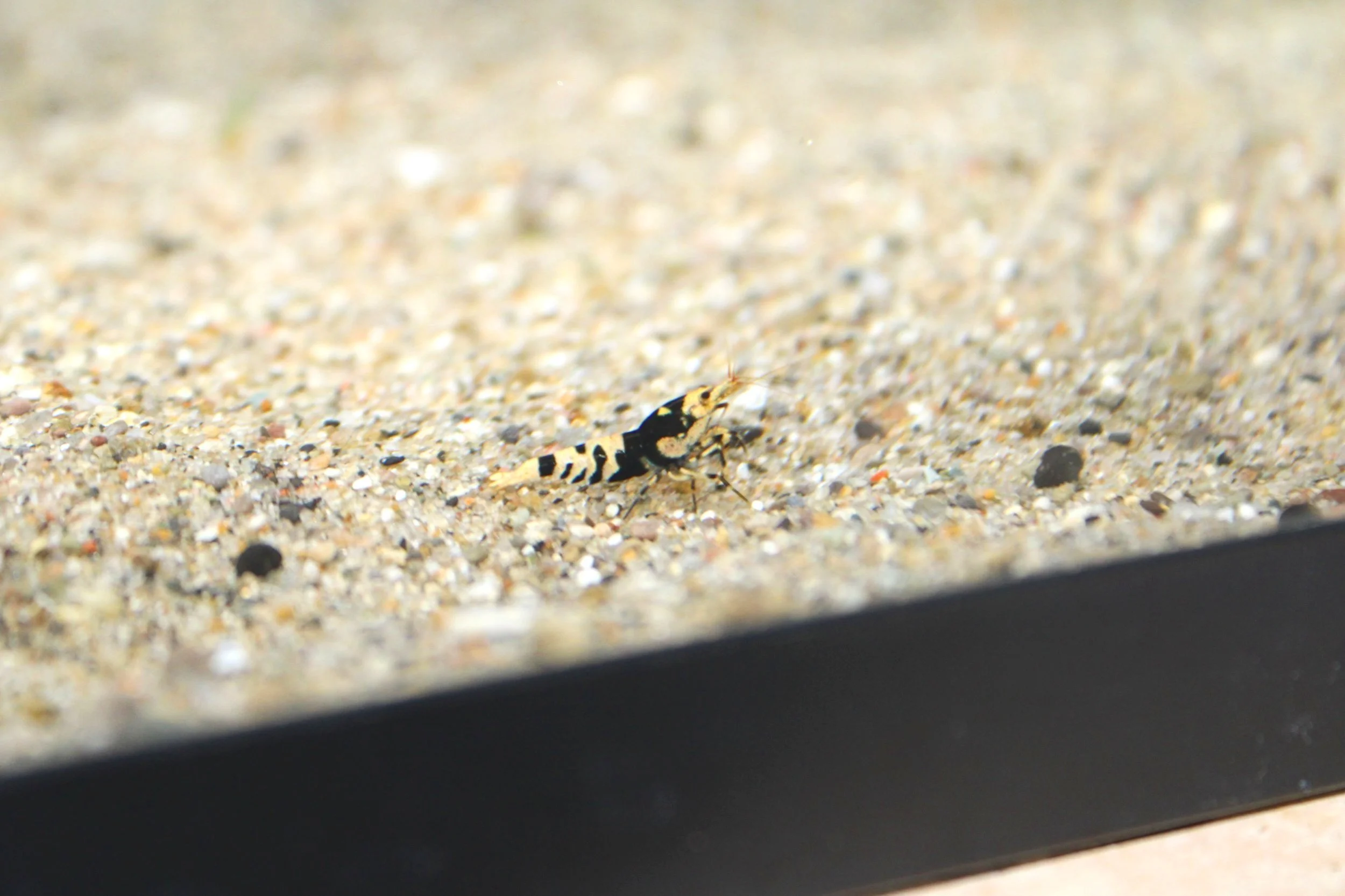 Image 5 of 7
Image 5 of 7

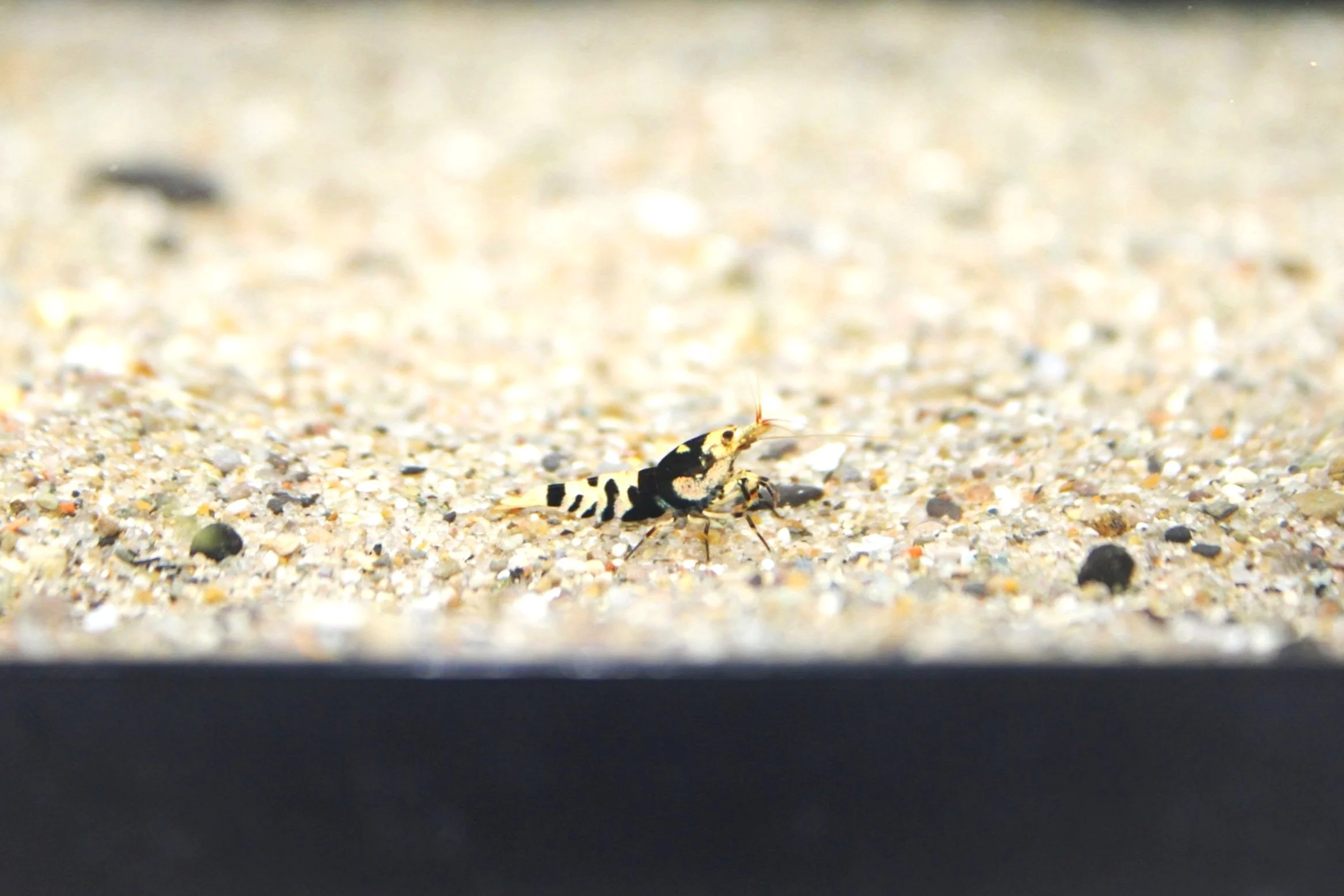 Image 6 of 7
Image 6 of 7

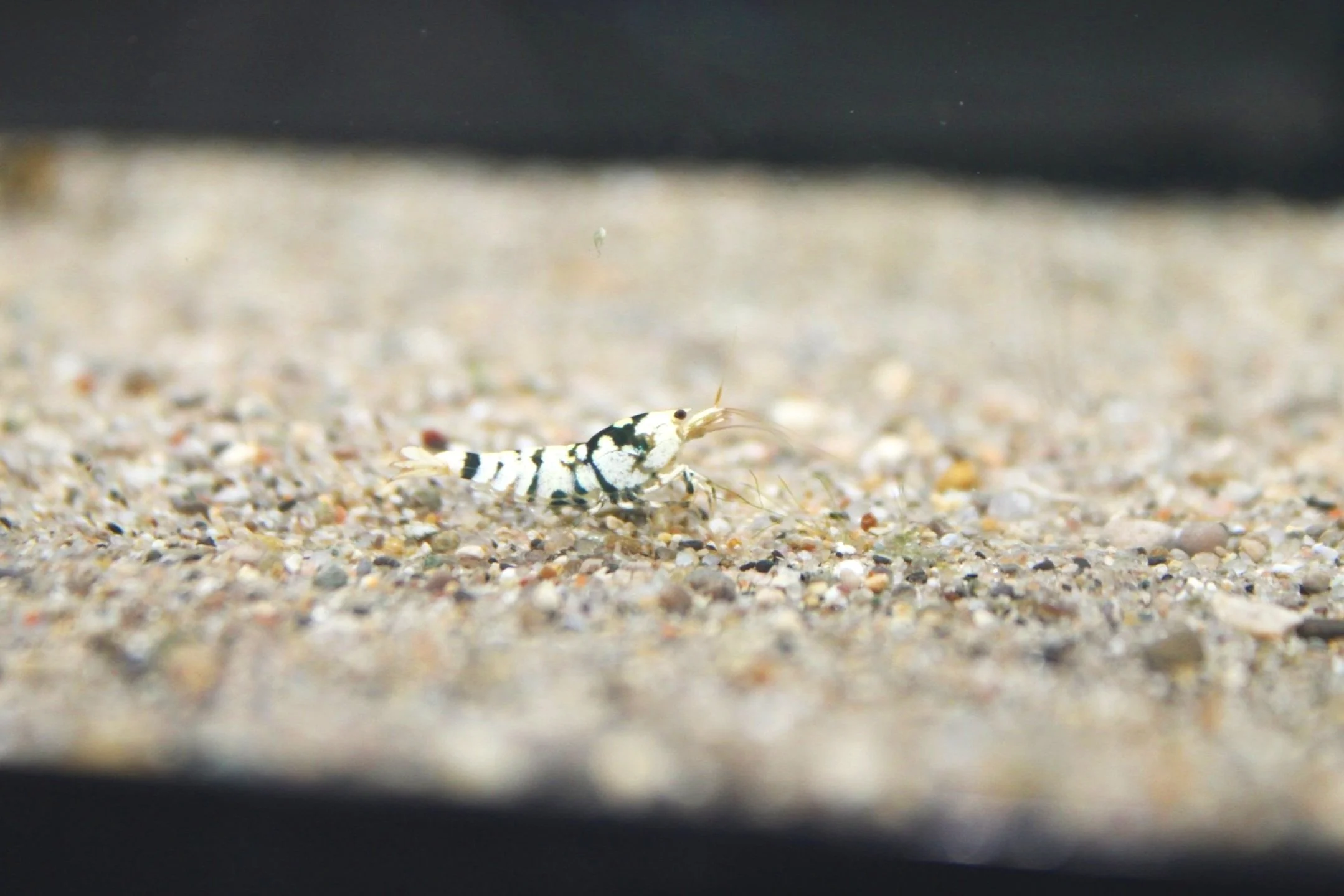 Image 7 of 7
Image 7 of 7








Black Fancy Tiger Shrimp Grade A
Add bold, dramatic contrast to your shrimp tank with the Black Fancy Tiger Shrimp, a stunning Caridina hybrid combining the best traits of Crystal Black Shrimp and Tiger Shrimp genetics. Known for their deep black bodies adorned with crisp white tiger-like stripes, these shrimp are a high-grade, eye-catching addition to any soft-water shrimp setup.
We ship healthy juveniles at approximately 0.5 inches, ideal for safe transit and long-term acclimation to your aquarium conditions.
Key Features:
Species: Caridina (Black Fancy Tiger hybrid)
Color Pattern: Glossy black with distinctive white stripes (pattern varies slightly by individual)
Size Shipped: 0.5” juvenile
Adult Size: ~1–1.2 inches
Temperament: Peaceful, shrimp-safe
Lifespan: 1.5 – 2 years
Swimming Level: Bottom
Origin: Tank-raised in Taiwan Bee conditions
Ideal Tank Parameters:
Temperature: 68°F – 74°F (20°C – 23.5°C)
pH: 5.8 – 6.8
GH: 4 – 5
KH: 0 – 1
TDS: 100 – 150 ppm
Substrate: Active buffering substrate required (ADA Amazonia, Brightwell, etc.)
Filtration: Sponge or gentle filtration system preferred
Why Choose Black Fancy Tiger Shrimp?
✔ Bold Black-and-White Contrast – Striking in Planted and Dark Substrate Tanks
✔ Taiwan Bee Lineage – Pairs Well with CRS, Blue Bolts, Shadow Pandas
✔ Ideal for Breeding Projects and Nano Aquascapes
✔ Peaceful and Compatible with Other Caridina
✔ Great Biofilm Cleaners and Low Bioload
Care Tips:
Black Fancy Tigers thrive in mature, well-cycled aquariums with stable soft water, abundant biofilm, and low competition. Use RO/DI water remineralized with GH+ and maintain consistent parameters. Provide moss, botanicals, and leaf litter to enhance biofilm growth and offer hiding spots.
Best Kept With:
Other soft-water Caridina shrimp (CRS, CBS, Shadow Panda, Red Fancy Tiger)
Peaceful nano fish only if shrimp-safe
NO aggressive or fast-moving tankmates
Diet:
Omnivores. Feed a varied diet of:
Shrimp-specific foods (Borneowild, Glasgarten, etc.)
Blanched vegetables (spinach, zucchini)
Snowflake or biofilm-enhancing foods
Occasional protein-based treats in moderation
Add bold, dramatic contrast to your shrimp tank with the Black Fancy Tiger Shrimp, a stunning Caridina hybrid combining the best traits of Crystal Black Shrimp and Tiger Shrimp genetics. Known for their deep black bodies adorned with crisp white tiger-like stripes, these shrimp are a high-grade, eye-catching addition to any soft-water shrimp setup.
We ship healthy juveniles at approximately 0.5 inches, ideal for safe transit and long-term acclimation to your aquarium conditions.
Key Features:
Species: Caridina (Black Fancy Tiger hybrid)
Color Pattern: Glossy black with distinctive white stripes (pattern varies slightly by individual)
Size Shipped: 0.5” juvenile
Adult Size: ~1–1.2 inches
Temperament: Peaceful, shrimp-safe
Lifespan: 1.5 – 2 years
Swimming Level: Bottom
Origin: Tank-raised in Taiwan Bee conditions
Ideal Tank Parameters:
Temperature: 68°F – 74°F (20°C – 23.5°C)
pH: 5.8 – 6.8
GH: 4 – 5
KH: 0 – 1
TDS: 100 – 150 ppm
Substrate: Active buffering substrate required (ADA Amazonia, Brightwell, etc.)
Filtration: Sponge or gentle filtration system preferred
Why Choose Black Fancy Tiger Shrimp?
✔ Bold Black-and-White Contrast – Striking in Planted and Dark Substrate Tanks
✔ Taiwan Bee Lineage – Pairs Well with CRS, Blue Bolts, Shadow Pandas
✔ Ideal for Breeding Projects and Nano Aquascapes
✔ Peaceful and Compatible with Other Caridina
✔ Great Biofilm Cleaners and Low Bioload
Care Tips:
Black Fancy Tigers thrive in mature, well-cycled aquariums with stable soft water, abundant biofilm, and low competition. Use RO/DI water remineralized with GH+ and maintain consistent parameters. Provide moss, botanicals, and leaf litter to enhance biofilm growth and offer hiding spots.
Best Kept With:
Other soft-water Caridina shrimp (CRS, CBS, Shadow Panda, Red Fancy Tiger)
Peaceful nano fish only if shrimp-safe
NO aggressive or fast-moving tankmates
Diet:
Omnivores. Feed a varied diet of:
Shrimp-specific foods (Borneowild, Glasgarten, etc.)
Blanched vegetables (spinach, zucchini)
Snowflake or biofilm-enhancing foods
Occasional protein-based treats in moderation




